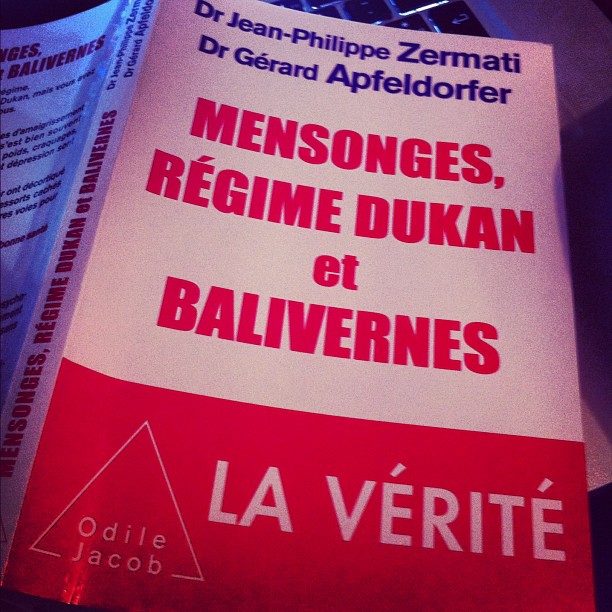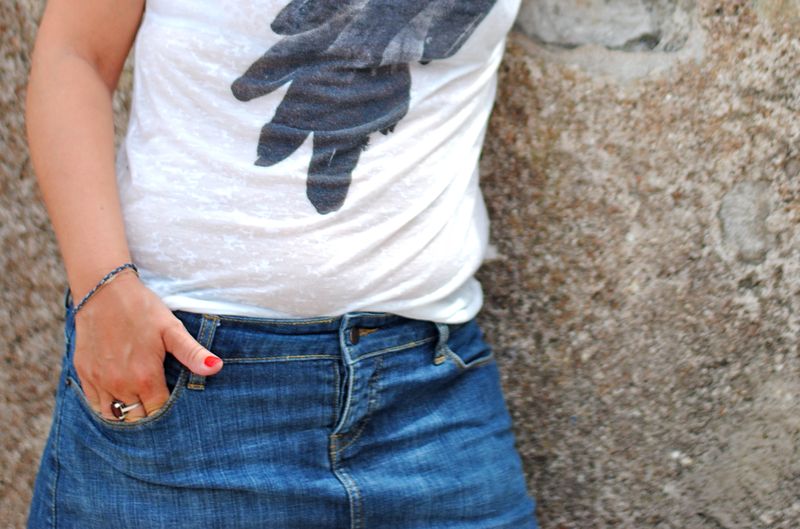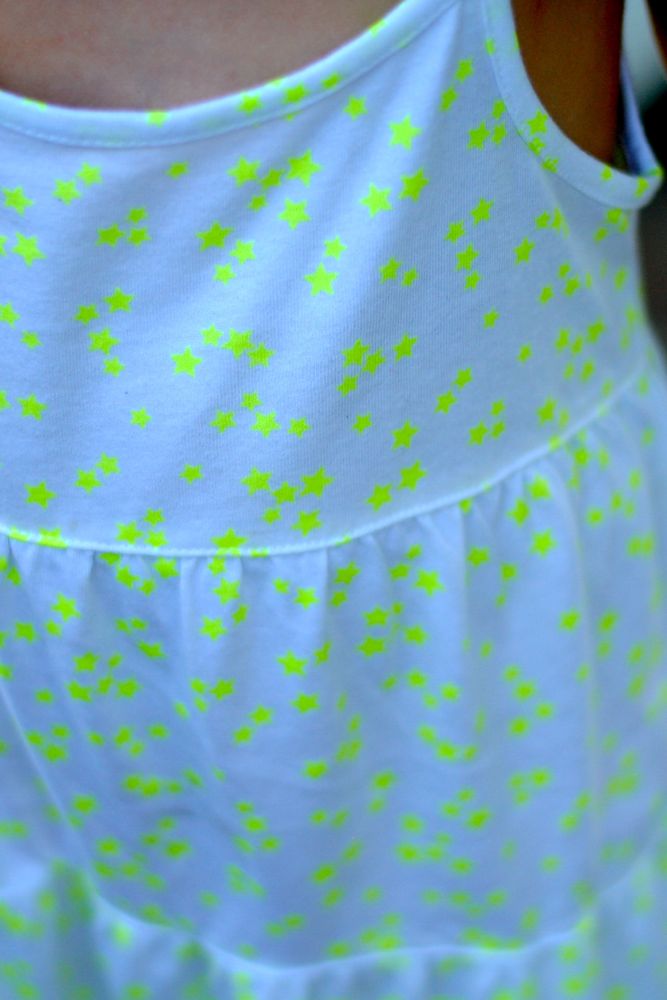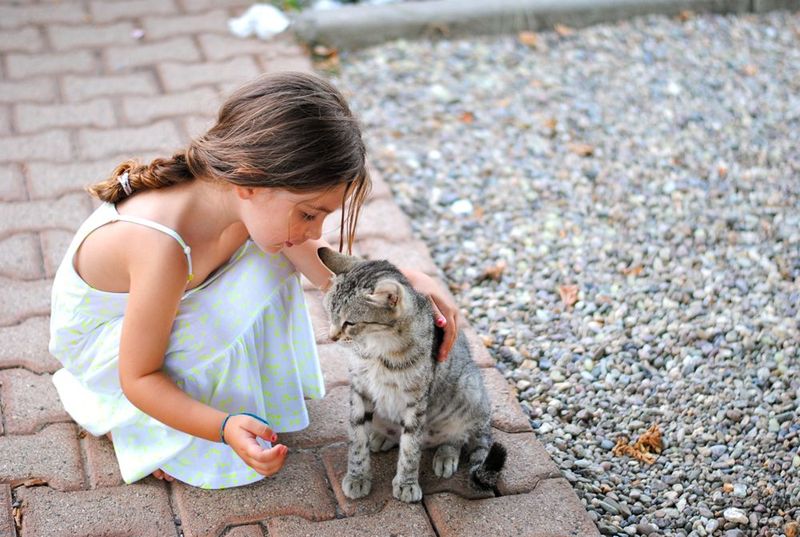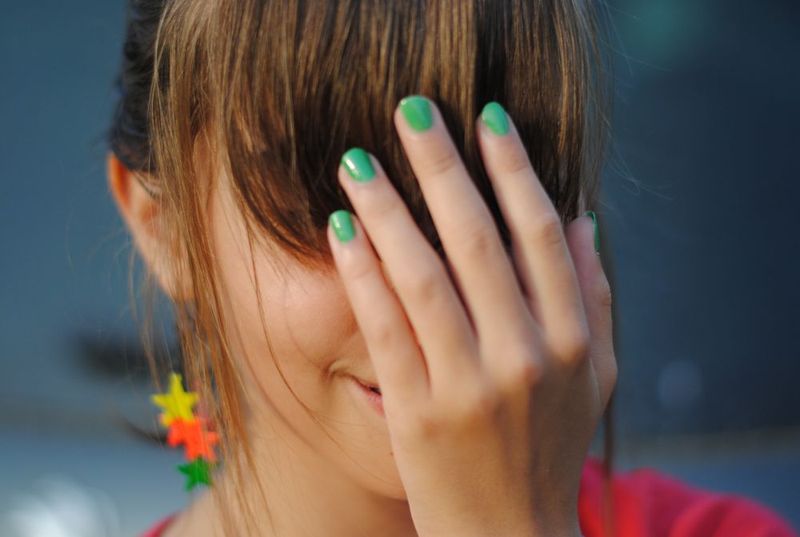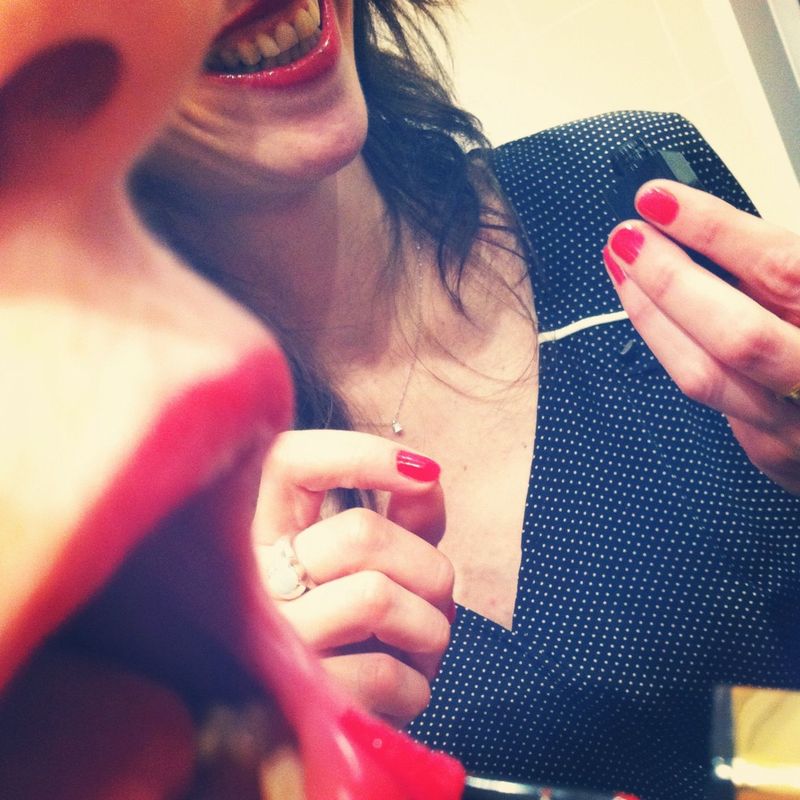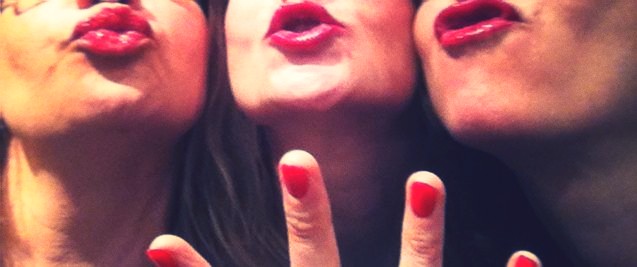
It’s been a while since I last mentioned Zermati, mindfulness and all the things that have helped me stop considering food as my best enemy. I’ve stopped the therapy three years ago now. I’ve been stable for three years, fluctuating sometimes by two or three kilos, without it being a source of absolute anxiety, without old obsessions relapse, promising myself I would fast for three days, banishing chocolate for life or daily lashing on the mode “I’m just a cow with no willpower”. I’m not going to lie to you, I’m not happy when my trousers get too tight and I’m still terrified by idea of putting on again one day that weight I’ve lost. But this thought is rather far, it doesn’t obsess me like before and doesn’t prevent me from going to the restaurant, enjoying a homemade cake or a finger diner. In short, I’m not sure I’m “cured”, but let’s say remission has lasted long enough for me to be relatively serene.
Now that this little preamble is finished, I thought it could be interesting to share with you Gérard Apfeldorfer’s point of view. He is a psychiatrist and a psychotherapist, and Jean-Philippe Zermati’s associate. At the occasion of the GROS’ congress this week, he gave me an interview in which he reminds us the basic principles of the method he and Zermati have established. Be aware that, next Saturday, there will be a session open to the public. The theme will be “Mangez en faim[1]” and you can attend for free, register here. Knowing that it takes place in Cordeliers faculty of medicine, a place dear to my heart since it’s where my brother presented his thesis. A wonderful place with lots of history, if I weren’t myself on a business trip this week I would have gone for sure. I never have enough of listening to GROS’ speeches, as they turned my life upside down…
I leave the floor to Gérard Apfeldorfer…
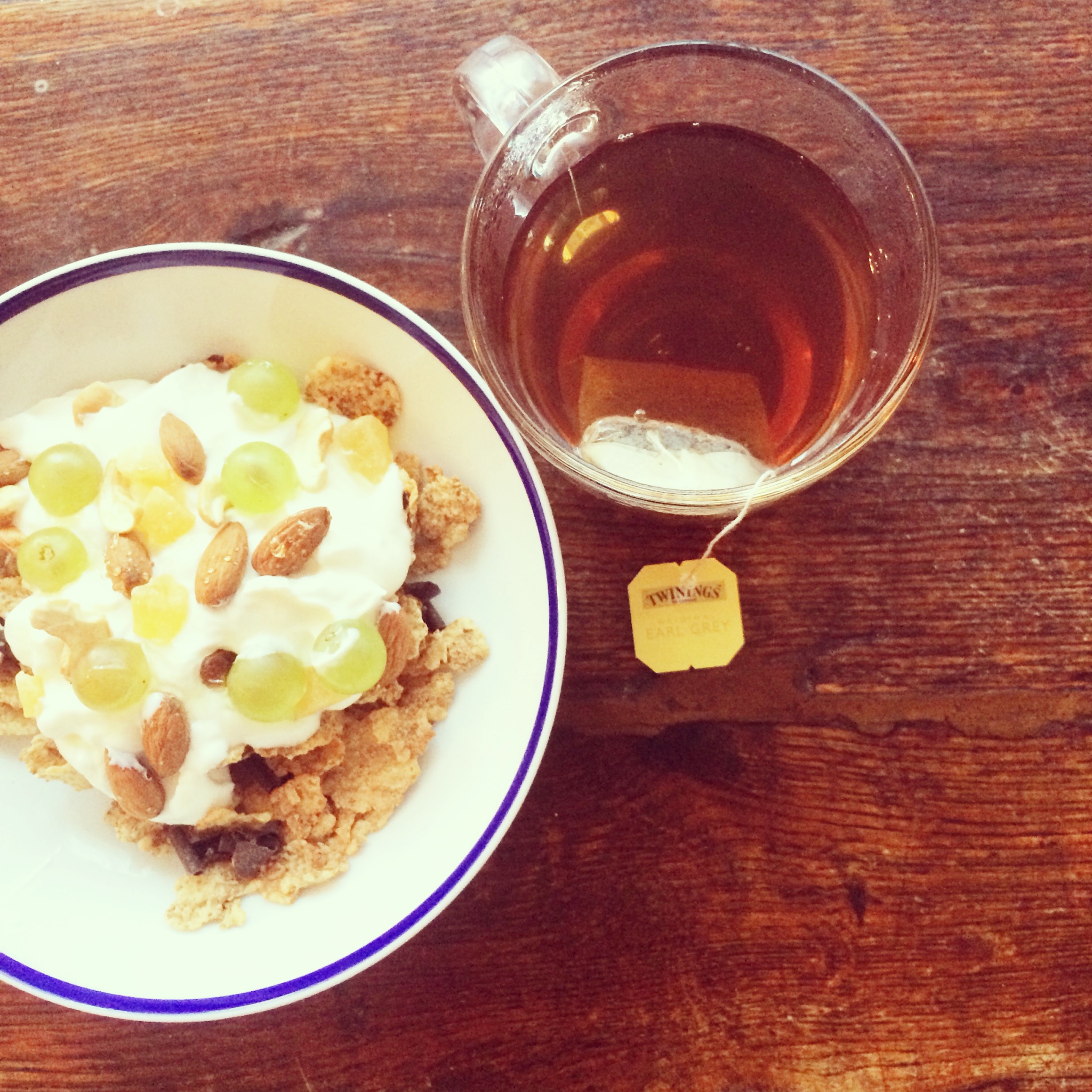
Kindly remind us what the GROS’ objectives are.
Gérard Apfeldorfer: The research group on obesity and overweight is an organization registered as a non-profit association in accordance with the French law passed in 1901 created fourteen year ago. The initial objective was essentially to gather health professionals who were dealing with obesity issues. We had in common being fed up with diets, which we considered as toxic and ineffective. The idea was to explain that weight issues don’t come only under dietetics. Originally, we were rather marginal. Little by little, numerous scientific studies that were showing mid and long term ineffectiveness of diets and their nuisances, namely ascending yoyo effect, eating disorders, self-esteem loss and depression, have ended up convincing the medical world, or least recognized specialist. So now the troop agrees with us! The association evolved in parallel developing alternative method to provide care for obesity and associated eating disorders. Now, we have something to offer.
Kindly sum up the method advocated by GROS. Do you have a way to prove its effectiveness?
Gérard Apfeldorfer: I think it must be made very clear that today there is no method that guarantee lasting weight loss. Research of all kind, genetic, neuro-hormonal, on intestinal microbiota, for example, are in progress but we can’t expect anything immediately. There is no miracle pill! The medical corps is globally resourceless, when the weight loss demand has never been so high. In this context, we have worked on an approach that allows us to help people differently, keeping in mind that we can’t promise results in every instance and that “success” of the therapy requires patients’ involvement, acceptance of spread over time work.
Our method is based on three lines.
The first one is about eating behavior and hunger and satiety sensations identification. These sensations are often totally disturbed by repeated diets and the cognitive restriction they’ve led to. In other words, by always controlling themselves, overweight people have absolutely no idea if they are hungry, what they feel like and when they must stop eating. Forcing yourself to follow dietary rules is contrary to the organism’ physiologic functioning. Several exercises enable our patients to start listening to their eating sensations, to stop demonizing food, including the most calorific, to discover their body’s wisdom as soon as they listen to it instead of brutalizing it. Often, they confess feeling liberated.
Second line, emotions. Eating doesn’t fulfill only physiological needs, but helps, also, with calming emotions, whether it is anxiety, boredom, anger, etc. This is part of cognitive behavioral psychotherapy. We use tools like cognitive therapy and mindfulness, which are very effective and powerful. The idea is not to fight emotions, they are part of us, but learn to accept them without them triggering desires to eat.
Finally, the third line is body. Overweight people often have a very negative perception of their body. It is the target enemy, the one that doesn’t want to obey or function as it should. It results in an internal fight between yourself and your body. Often it ends in an unconscious will to not feel this body, leaving it as still as possible. When you don’t move you don’t “feel” your body. To help with reconciliation, we use, here too, mindfulness techniques like “body scan”, that consist in visualizing each part of your body, to experience this body from within and really inhabit it. Then we encourage patients to start moving again, not with a weight loss purpose (sport doesn’t make you lose weight, at best it helps stabilizing your weight) but in order to be “gentle” with their body. I’m used to comparing this with a pet dog, which, if it always stays in a flat, becomes sad. If you take it to the park, plays with it in the open air, it is happy. The body needs this too. It can imply a bit of efforts, especially in the beginning, but without pointless suffering. The principle being that positive sensations prevail over everything else. It can also be achieved through massages, yoga, tai-chi, very soft exercises.
Is this method the one you use on Linecoaching, which you’ve created with Doctor Jean-Philippe Zermati? Do you have enough perspective to evaluate the results of this online method?
Gérard Apfeldorfer: Yes, on Linecoaching we use the same principles as in our doctor’s rooms. We have started a study together with two hospitals to try to analyse the results, but it’s still too early to draw conclusions. What we notice on Linecoaching is that people who take part in forums are more involved and show a real increase in well-being. Whether for face to face therapy or on Linecoaching, once again, this method requires patient’s involvement, it is not a recipe where the latter is made irresponsible.
Can we really expect personalized care from an online therapy?
Gérard Apfeldorfer: Yes! Studies show that online therapies are equal to similar therapies directly with a professional. Members of Linecoaching receive support from coaches, by email or on the phone. Jean-Philippe Zermati and I often organize chats to answer questions. Being able to participate in many online discussions on forums helps a lot as well. On these forums, people who went through the program already can support and advise newbies. The objective is to promote exchanges and dialogue to fight against the isolation overweight people can feel.
GROS’ yearly conference’s theme is ‘fears’ this year. What are these fears, how do they have an effect on weight and eating behavior?
Gérard Apfeldorfer: We indeed wanted to discuss the different fears that interact with our eating behaviors. They are more and more intense and numerous. There’s the fear to put on weight, of course, which results in general in weight gain, because it triggers restriction mechanisms that themselves result in compulsions. There is the fear to lack, very real for overweight people who anticipate and eat while they are not hungry. There’s finally the fear to eat incorrectly which leads to orthorexia (being obsessed by eating healthy), more present with people consulting nutritionists than in the rest of the population, but it is a widespread trend. We are afraid of poisoning ourselves, afraid of the effect our food choices will have in twenty or thirty years on our organism. Eating is not a restorative act anymore but a source of anxiety.
Is this fear justified, according to you?
Gérard Apfeldorfer : One thing is certain, it is less dangerous to eat now than one century ago, when intoxication risk was high because of toxic additives, dangerous cooking method, bad food conservation or bacteria that are almost inexistent today. I think that behind all current precautions, there’s this belief of being able to fight aging, even death, by only eating ultra healthy food. It’s a slightly useless youth quest, especially when it turns into obsession, and it wastes our present to protect us from the future.
Edit: I might not be very available this week, I’ll be in Lyon from tomorrow for a conference. Generally, it has been a bit crazy lately with work, it explains the slow pace on these pages, I sincerely hope it will slow down!
[1] TN: the literal meaning is “Eat with hunger” but it’s also a play on word with “Manger enfin” which sounds the same when pronounced and can mean “Eat at last” or “Finally eat”.




